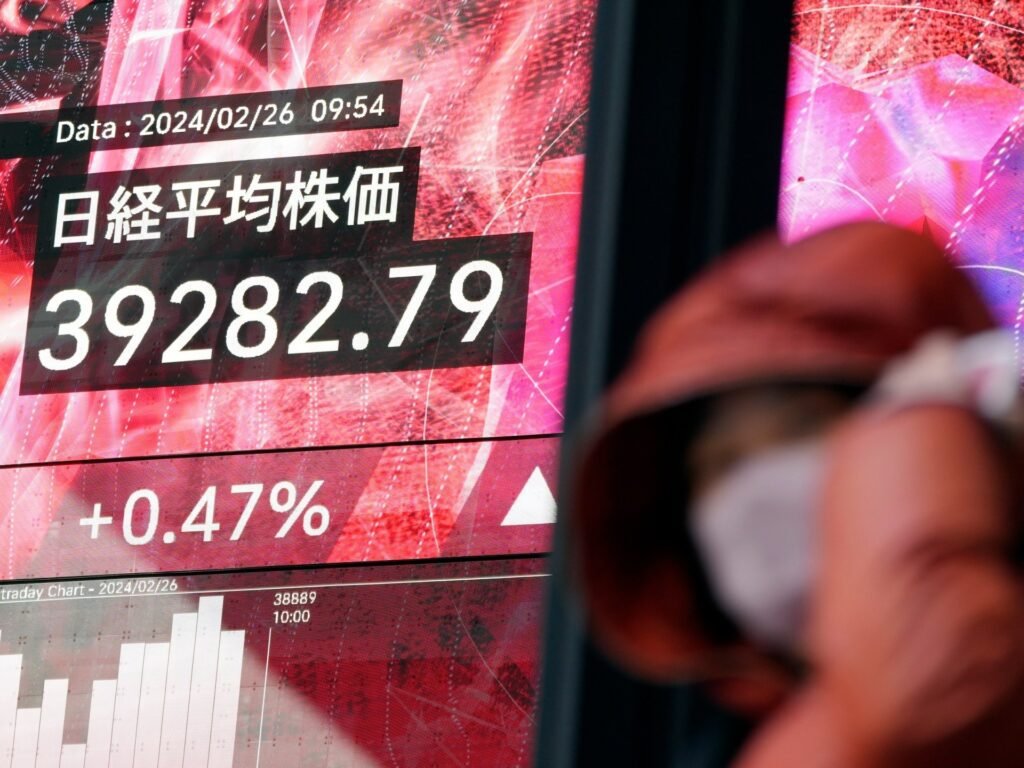Tokyo’s Nikkei Stock Average made history last week by hitting its highest price in about 35 years.
After decades of stagnation, Japan’s stock market hit a new high last week, topping its 1989 high.
Tokyo’s benchmark Nikkei 225 index rose nearly 0.7% in morning trading Monday, continuing a rally that has made Japanese stocks one of the hottest buys in the past year.
Mitsubishi UFJ Financial Group and pharmaceutical company Daiichi Sankyo were the main gainers.
On Thursday, the Nikkei Stock Average surpassed its all-time high of 38,915.8 yen, set in 1989, when Japan’s economy was on the brink of an asset crash that began the “lost decades” of economic stagnation.
The Nikkei average rose 28.2% through 2023, significantly outperforming the S&P 500, which itself had a bumper year.
Money from abroad is flowing into Japanese stocks as investors take advantage of a weaker yen and corporate governance reforms that have boosted shareholder returns.
However, the Japanese economy as a whole continues to suffer from anemic growth amidst structural issues such as a declining population and a rigid labor force.
Japan’s economy officially entered recession earlier this month, losing its position as the world’s third-largest economy to Germany.
Other Asian markets fell on Monday.
Hong Kong’s Hang Seng and Shanghai Composite both fell 0.7%, and South Korea’s Kospi fell 0.8%.
